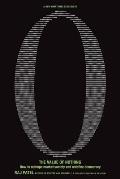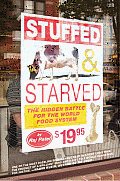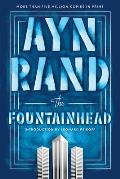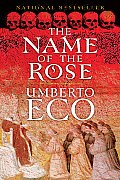
Raj Patel's new book,
The Value of Nothing, explores ways we might more accurately value the world, arguing that our current market system is deeply flawed. Patel begins with an entertaining and well-written summation of economic history, traces the causes of the current financial crisis, and highlights some movements that offer us examples of how to value resources in a more just and equitable way.
Illuminating the interconnected and global web of economics, ecology, democracy, and social justice, The Value of Nothing is a powerful, hopeful, and relevant work. Michael Pollan raves, "Bracingly written and full of surprises, The Value of Nothing is itself invaluable, showing us a path out of the darkness of the economic woods."
÷ ÷ ÷
Jill Owens: Is The Value of Nothing an expansion from your first book, Stuffed and Starved?
 Raj Patel: It is, but it's also broader. The idea behind Stuffed and Starved was a very specific kind of investigation into why it is that we have a billion people overweight and a billion people starving. The book was set up to answer that question.
Raj Patel: It is, but it's also broader. The idea behind Stuffed and Starved was a very specific kind of investigation into why it is that we have a billion people overweight and a billion people starving. The book was set up to answer that question.
The Value of Nothing is answering a much bigger question, which is: So if Alan Greenspan says that there's a flaw in free market ideology, firstly, why the hell haven't we appreciated just what that means, and then secondly, what do we replace it with?
Although, obviously, Stuffed and Starved betrayed a certain kind of politics and a certain kind of view of what the economy should look like, in this book I'm a little more off the leash. This was meant to be more fun to read, and more of a romp, but also, the idea was to put more tools into people's hands to address the issues of the economy beyond the food movement. Although I think the food movement is terrific and I spend a lot of time mining some of their examples, there are other organizations and other issues that I'm keen to bring in to understand what we might replace the current economy with.
The purpose of this book was to use some of the same ideas that informed Stuffed and Starved and make them totally explicit. I hunkered down a little more and wanted to show how they're at once entertaining, important, and hidden, as well.
Jill: Your metaphor of Anton's blindness is a powerful one. Can you describe that disease and how it relates to the way we see our economic system?
Patel: Anton's blindness is a neurological disease that one gets, usually from a traumatic brain injury or a stroke. It's a disease where the impulses from your eye do not reach your brain; you are cortically blind. If you've got Anton's blindness, you insist that you can see despite the fact that you're blind.
As you can imagine, people with Anton's blindness bump into things a lot. They will make up stories, because they've bumped into something, and their brain insists that they can see, but they've clearly just hit something. So there has to be a moment of storytelling to reconcile these two different facts. That confabulation is the means by which the disease is diagnosed. When people confabulate by saying, "I just ran into something; who put that there," that confabulation becomes a way in which neurologists can understand that they are, in fact, suffering from Anton's blindness.
It becomes a metaphor for the way that we've responded to this economic crisis. We insist that basically the free market is okay, and that all that was needed was for people to have spotted Bernie Madoff before he ran off with the money. Or if only there had been better banking regulation, or if only we hadn't dismantled Glass-Steagall. That's all true, but it leaves intact the fundamentally flawed assumption that actually, the markets were working just fine, and we can return to a situation that will be fine and dandy as soon as we get the regulation in place.
That hankering for a return to normal that never was is why Anton's blindness is a useful metaphor, because in fact we remain blind if we insist that actually, markets can help us see.
 Jill: What was the flaw Greenspan admitted to in his ideology about free market economics, and what has it meant for our economic system?
Jill: What was the flaw Greenspan admitted to in his ideology about free market economics, and what has it meant for our economic system?
Patel: Initially, the flaw was that he had been insufficiently rigorous in his application of data. He said that if we'd looked 40 years into the past, rather than 20, we would have been able to feed better data into the model and the model would have generated more appropriate observations about what was going to happen. But he was forced by Henry Waxman in this hearing back in October, 2008, to admit that there was a much more fundamental ideological flaw in his model about free markets working all the time for the best of everyone, and that unfettered self-interest would lead to a perfect world.
That ideological flaw has since been retracted by the Chicago school. They say that the reason things went wrong were because free markets weren't given sufficiently free reign. But it seems fairly clear to anyone with a mind that the problem really lies in the massive and unregulated range of free markets. It certainly was an underlying cause of the financial crisis.
But there are bigger crises afoot that are not counted in and not calculated in the discussions around the financial crisis; chiefly, climate change. For people in developing countries, there's been a crisis for a very long time, evinced by levels of hunger, by levels of ecological debt and destruction that have been wrought there. Again, these haven't been counted. They don't appear in any balance sheet that the U.S. government keeps. There have been some very serious effects nonetheless, and those flaws are far deeper than anything to do with getting the right data.
Jill: Those externalities are not being factored into the prices we pay. So therefore, you write, the real cost of a McDonald's hamburger should be $200. How do you get to that figure?
Patel: That draws on some work that some researchers in India did a few years ago. They said, "If the beef comes from pasture that once upon a time used to be rain forest, then we can impute some dollar values to the ecosystemic services that we've lost in the destruction of this rain forest. We can hazard a guess at the value of the plants and animals, the biodiversity that's been lost. We can put a fixed dollar value to the oxygen that was being produced by this rain forest and the carbon that was being sequestered." That value, when you add it up per cow, per burger, ends up being $200 rather than $4.
That, of course, is only part of the picture. It's only a small slice of the cost that prices exclude. The cost of labor in the cost of the hamburger is systematically underpaid. There's modern-day slavery in the production of tomatoes that appear in our hamburgers. (A thousand people have been freed from that modern day slavery since 1997, which I write about in the book.) And that doesn't begin to factor in the health care costs that we pay afterwards. In the U.S., one in five health care dollars is spent taking care of someone with diabetes. That's 180 billion dollars. One in three Americans born after 2000 will develop diabetes.
These are costs that we absolutely do pay. It's just that the burger company doesn't pay them when it presents us with a price. It profits nonetheless from the environmental destruction, from the underpayment of labor, and from not having to deal with the health care costs that are associated with those products. That's why I say that cheap food is in fact "cheat food." There's something very systematic about the escaping from paying for inputs, after consequences.
Jill: The idea that corporations are being subsidized by nature — which is "free" until someone has to pay to clean up the pollution, etc., which doesn't even taken into account the opportunity cost — was an interesting and novel way of putting that.
Could you explain the idea of Homo economicus, that you come back to several times in the book?
 Patel: Homo economicus was something that John Stuart Mill invented. For Mill, it was a way of getting to truth in social sciences. He wanted a way of making rigorous the approach of modern economics. He was borrowing from cutting-edge physics, at the time. That's why the creature of modern economics today resembles an atom in 19th century physics. It's an individual that floats around and has its own governing properties. For Mill, that atomic individual was basically a maximizing individual, something that wanted to maximize the function of whatever it was that we'd set up the parameters for. The idea was for Mill that this was the only way that we could get at rigorous science in social science, and the way to get to truth, because it aspired to the conditions of physics. Something that was very exciting for social scientists is to be able to make assumptions that made their art look like physics.
Patel: Homo economicus was something that John Stuart Mill invented. For Mill, it was a way of getting to truth in social sciences. He wanted a way of making rigorous the approach of modern economics. He was borrowing from cutting-edge physics, at the time. That's why the creature of modern economics today resembles an atom in 19th century physics. It's an individual that floats around and has its own governing properties. For Mill, that atomic individual was basically a maximizing individual, something that wanted to maximize the function of whatever it was that we'd set up the parameters for. The idea was for Mill that this was the only way that we could get at rigorous science in social science, and the way to get to truth, because it aspired to the conditions of physics. Something that was very exciting for social scientists is to be able to make assumptions that made their art look like physics.
So this idea of Homo economicus as a maximizing agent that's out there to pull in as much satisfaction or whatever it is as it possibly could becomes the basis for a way of thinking about the world that Gary Becker has won a Nobel Prize for. Some economists describe him as "an economist's economist," because wherever he looks, he sees maximizing individuals and markets in which they operate.
The trouble is that, of course, this leads to particularly preposterous conclusions, in particular when he thinks of gender. I spend a lot of time in the book talking about gender, how capitalism gets a subsidy not just from nature, but from the reproductive labor that women do, as well. Becker doesn't really care about that. He may love his dogs, and he seems to care about welfare in a really abstract way, but this leads him to some slightly bonkers conclusions.
For example, if you view marriage as a market, where women are out to maximize the return they get for themselves, then he says that surely what we need to do is allow polygamy, because then women who are too ugly to be the first wives of rich men will at least be able to make something for themselves as second wives, and therefore, overall welfare will go up and it will be a better world. Similarly, he says, we should just auction off the rights to become a citizen, so that we let the right kind of person in, and also cut the government debt. How cool would that be, he says.
So again, it's this idea of seeing the world purely through the assumptions of economics. It's interesting, because Mill, particularly towards the end of his life, didn't recant the idea of Homo economicus, but what he did think was that actually you need a much more socialist distribution of resources in order for the market to work properly in an effort for utility to be maximized across society.
 But all of a sudden this assumption of Homo economicus escapes its boundaries, and it becomes not just an assumption or a way of getting at the truth, but the truth itself. It becomes the way in which we actually believe society matters, that society works. Ayn Rand is a poster child for this. Her dystopias are populated precisely by selfish, greedy bastards who are only in it for themselves. And somehow the dystopias she paints are meant to be really cool, and this is what we ought to be aspiring to. It is at her feet that Alan Greenspan sat and earned the name "The Undertaker." It always tickles me to imagine Alan Greenspan as a young undertaker.
But all of a sudden this assumption of Homo economicus escapes its boundaries, and it becomes not just an assumption or a way of getting at the truth, but the truth itself. It becomes the way in which we actually believe society matters, that society works. Ayn Rand is a poster child for this. Her dystopias are populated precisely by selfish, greedy bastards who are only in it for themselves. And somehow the dystopias she paints are meant to be really cool, and this is what we ought to be aspiring to. It is at her feet that Alan Greenspan sat and earned the name "The Undertaker." It always tickles me to imagine Alan Greenspan as a young undertaker.
These weren't idle thought experiments; they were made government policy. You have the escape of assumptions. I follow the trajectory in the book of how what started off as an epistemological tool becomes a governing rule of our modern economy, and that's something that is tremendously dangerous.
Jill: Does the resurgence of Ayn Rand's popularity concern you? She's been on our bestseller lists fairly frequently over the last year.
Patel: I can see why, because on Fox all of a sudden people have used this as an opportunity to say, Well, if you want to know why the economy has gone south, read Ayn Rand. What I think is more worrying is not that there are teabaggers, and in fact, not that they are racist and they are manipulated by Fox News to become basically a mob for corporate rule, though that is in and of itself worrying.
It's that I'm not seeing enough people taking seriously the fact that these are some very justifiably angry people. The way that they are mobilized is exactly the way that Obama supporters were mobilized. The slogans are almost exactly the same: The government doesn't know what it's doing. It's committing us to wars in several countries against people we don't give a shit about. (I should clarify — I'm certainly saying that we oughtn't to be at war in Iraq or Afghanistan, but not because we don't give a shit about the people there — precisely because we give a shit about the people there.) But the idea of the government really not knowing what it's doing with economic policy, the government giving subsidies to large corporations, this is something that you see as a motto both on the left and the right. That kind of populist anger is very understandable. The sad thing is is that Ayn Rand is the person that the teabaggers are turning to because she seems to be the closest they can get to an ideologue who hasn't been in some way discredited because her ideology is so vapid, vacant, and inconsistent that you can make pretty much anything out of it.
In fact, that was one of the reasons why I wrote the book as well. I forced myself to reread Ayn Rand, which was obviously a very painful experience, but because I was realizing that there was no counternarrative in the same way. Except science fiction. She writes in a certain kind of dystopic vein, but it is not about the world as it is now but as it might be just a few years hence, for example. That's important. I don't think people fully appreciate the power of science fiction.
In many ways I go to the anti-Ayn Rand, Octavia Butler, an African-American woman who's writing about the liberating possibilities of science fiction. I might have chosen Ursula LeGuin, because she's an amazing anti-capitalist writer and she's just bloody amazing. But it is important to recognize that there are certain kinds of science fiction that do open our imaginations to ways the world might be. I would very much like more Octavia Butler and Ursula LeGuin than Ayn Rand being read right now, for sure.
 Jill: Have you read Margaret Atwood's The Year of the Flood and Oryx and Crake?
Jill: Have you read Margaret Atwood's The Year of the Flood and Oryx and Crake?
Patel: These are two books that are very high on my reading list.
Jill: They're wonderful, and they're certainly a sobering look at what might happen if we don't change the ways that we're currently doing things and the way we're devaluing the natural world.
Patel: Excellent. I've been hearing her on the radio talking about debt recently, and she's just a Canadian national treasure, I feel. I'm very excited to read them.
Jill: I like your formulation that the opposite of consumption isn't thrift, it's generosity. Has altruism evolved bioculturally?
Patel: Yes. This idea of selfish genes — I buy that. I think yes, our genes are selfish. But people again make the mistake of thinking, "All right, so survival of the fittest must mean survival of the most selfish and bastardly." And it's not. Fitness means being adapted to survive in a particular context. The primate studies that I talk about in the book, or the studies even among the most selfish beings known to man, graduate economics students [Laughter] — even they do not behave as pure rational individuals, but they are more or less cooperative. Less, in their case. But this is something that demonstrates that in order for us to survive, for us to be fit and to meet the needs of the environment, if we were purely selfish, we wouldn't last very long. Our tribe or our family would just kick us out.
Because we have to some extent figured out that reciprocity, generosity, altruism, and even altruistic punishment — these things keep society ticking, we do it whether we like it or not, in some cases. The trouble is that the way we structure economic policy not only pretends that that doesn't exist, it goes out of its way to quash these kinds of ways of behaving.
I certainly don't pretend in the book that what we need to do is embrace our inner star child and become creatures of pure light and love. I look within myself and I see someone who's fairly selfish, and I imagine most of us are like that. But I'm with Rousseau here, who said, "Look, we are probably not the nicest creatures ever made. But what makes us different from other beasts is our capacity to be educated, to realize that we have had enough, to be sated, and to recognize our flaws and figure out ways around them."
This is a part of a longer running debate between Rousseau and Hobbes about the kinds of people we are, whether we are indeed selfish or whether we are these other things. And Rousseau is just one man in the European tradition who thinks about ways of structuring society so that our more altruistic and generous sides can flourish. But it's a much older question than Rousseau.
Jill: Could you explain the concept of a commons, both historically and a more contemporary version?
 Patel: The idea of a commons is pretty much always misunderstood. Most people hear about it as the tragedy of the commons, as what happens when you have a resource that it unowned, and then selfish individuals will repeatedly use that resource until there's nothing left. The tragedy of the commons, which not many people know, was a thought experiment. It was a thought experiment that was very compelling, because you have the very simple assumptions that we are selfish and greedy, and that by now owning a resource, there's no way of governing it other than by private property. If you believe those two things, then it's very clear that human beings are parasites and will destroy everything that they come into contact with that isn't under private property.
Patel: The idea of a commons is pretty much always misunderstood. Most people hear about it as the tragedy of the commons, as what happens when you have a resource that it unowned, and then selfish individuals will repeatedly use that resource until there's nothing left. The tragedy of the commons, which not many people know, was a thought experiment. It was a thought experiment that was very compelling, because you have the very simple assumptions that we are selfish and greedy, and that by now owning a resource, there's no way of governing it other than by private property. If you believe those two things, then it's very clear that human beings are parasites and will destroy everything that they come into contact with that isn't under private property.
But if you look at the history of the commons, you'll see that in fact, they needed to be smashed in order for capitalism to flourish. They actually worked very well. There was a study in the proceedings of the National Academy of Sciences last year that looked at 80 forest communities, and looked at the extent to which they were autonomous and had a sufficiently large area of land to work on. The study showed that if communities are given enough autonomy, enough freedom from both central government and free markets, and given enough land to work on, then not only do they do better than communities where the government comes in and starts messing around in terms of development indicators, in terms of how well that community does, but they also sequester more carbon. In other words, they manage the forest much better. That's good not just for them, because they have a better forest, but good for us, because that's sequestering carbon that we are emitting over here. That's terrific. We want more of that.
Commons are not these weird thought experiments where people fuck things up. It turns out that people are both not merely selfish but good at interacting and also can develop ways of managing property that aren't about private property but nonetheless are about management. That's what people don't get, that the commons is not just the stuff, but the way in which you common together, the way you manage that together.
The more recent inventions have been things like Creative Commons, where you have ideas floating around in cyberspace that people are able to share without privatizing them, where you use the law in a kind of jujitsu of claiming property rights on them only then to have those property rights revert to everyone who wants them in particular ways. What's interesting about Creative Commons and around the experiments about how to manage those property rights is that there have been lots of experiments. Wikipedia is obviously the most high profile, but there have been loads of experiments about how to manage and propagate property rights in ways that can work to foster innovation and to foster the sharing of ideas. What's lovely is that there's no one magic model; there's a whole ton of them. That kind of hundred flowers blooming is the kind of thing one would want. One doesn't want a monopoly on the perfect system. One wants many systems, because there's nothing perfect. There's nothing that could be.
So the idea of the commons works with physical property as well as intellectual property, and what I'm excited about is the confluence between the two.
Jill: You list some hopeful movements and ideas of people who are changing how economies work. One that impressed me was La Via Campesina.
Patel: I mentioned them a little bit in Stuffed and Starved, but it was important to go back to them because not only has not everyone read Stuffed and Starved, but the visions La Via Campesina had about this idea of food sovereignty and of ways in which communities can govern themselves democratically, those ideas have advanced and become more sophisticated in ways I think are well worth telling the world about.
 La Via Campesina is an international peasant movement of over 150 million farmers, farm workers, and landless people. What they've been fighting for is the right to be able to have rights over their food system. Earlier in the book, I talk about how the failure of modern capitalism is the failure to deliver the right to have rights, Hannah Arendt's idea. It's something that applies quite nicely to La Via Campesina, because what they're saying, in essence, is not, we, the farmers, are going to tell you how the food system works, but rather, we would like to have a democratic conversation about how the food system works. We'd just like to be able to sit around a table and have the right to be able to figure out what it is that we 're going to do. So in other words, they're asking for the right to have rights.
La Via Campesina is an international peasant movement of over 150 million farmers, farm workers, and landless people. What they've been fighting for is the right to be able to have rights over their food system. Earlier in the book, I talk about how the failure of modern capitalism is the failure to deliver the right to have rights, Hannah Arendt's idea. It's something that applies quite nicely to La Via Campesina, because what they're saying, in essence, is not, we, the farmers, are going to tell you how the food system works, but rather, we would like to have a democratic conversation about how the food system works. We'd just like to be able to sit around a table and have the right to be able to figure out what it is that we 're going to do. So in other words, they're asking for the right to have rights.
Their latest slogan goes straight to the heart of inequalities in power. They say, "Food sovereignty is an end to all forms of violence against women." We were talking earlier on about the subsidy that capitalism gets from women, and the fact that they're able to talk about the inequalities of power that exist, all the way from the World Trade Organization down to the household, is something that blows your mind, frankly. It's really cutting edge political theory. And it comes from peasants. The word peasant already carries with it an association of being backward and not knowing what the hell is going on. In fact, they not only understand very well what's going on but have a political program that seeks to redress the balance. I think that's tremendously inspirational, and something that matters right here and right now.
Jill: I think a lot of power in their slogan comes from the fact that it's not the way we're used to thinking about food. Could you explain how food sovereignty affects violence against women?
Patel: Violence against women isn't just about domestic violence, though of course that's tremendously important, and far too terribly real. But the structural violence that exists around, for example, not being able to send your daughter to school because she's needed in the fields and she is worth less than a boy. Or the violence of not being able to sell your product in the market — and the majority of food that is eaten in developing countries is grown by women. Women are finding it harder and harder because there is product being dumped into their economies from the United States and from Europe, for example. It's dumped at below the cost of production, so they have no chance of being able to sell their product in the market, no way of having the dignity of earning money to be able to participate in an economy, whatever kind of economy that may be. The violence of being in a country where the possibilities of democratic politics are eviscerated by the interference of foreign governments, like us in Haiti right now, for example. That's a kind of violence.
La Via Campesina understands that very well. It was movement that was formed through the interference of the World Bank in the affairs of developing countries. The theorization that La Via Campesina offers is one that disaggregates those inequalities up and down the chain of politics. It's nice because it leverages that feminist idea that the personal is political without ever having to say it. It's already right there in the heart of it.
Jill: Another interesting example that I hadn't heard of is participatory budgeting. Why don't more cities do this?
Patel: It is interesting that participatory budgeting has been very successful. The idea is that citizens wanted an end to political corruption and wanted more accountability from their government. This happened in Brazil, and it was a Workers' Party initiative. The Workers Party was elected with a mandate to transform the budgeting process. Rather than have a few bureaucrats or one or two elected officials who could be bought off decide where the money would be spent, the decisions about how the budget would be spent would be made in communities. They'd have local meetings and more regional meetings and then a city-wide meeting, where different delegates would come and present their plans and negotiate and argue about the spending of government budgets.
To some extent, it takes something like a Workers Party. It takes a drive for citizens to demand that this be the solution. It's not something that can be trickle down, in the same way that democracy is never trickle down. It's always bubble up. To some extent, the World Bank has encouraged it as a way of encouraging buy-in to certain kinds of spending programs. That's one of a couple of reasons why I think participatory budgeting is terrific, but it's not enough, because there are ways in which communities can fail.
There are also some ways in which participatory budgeting can be compatible with the status quo, insofar as, "You aren't getting any more resources; your budget is fixed, and you can only decide to spend on this, this, and this." Whereas what I'm excited by is not just the mechanics of how we manage things democratically, but also the political philosophy that allows us to manage things not undemocratically, but with an eye to social justice. That's why it's important to marry the political technologies of democratizing resources with things like the commons, with a very explicitly politicized anti-capitalist approach like in La Via Campesina. Because otherwise, you do just have the commons being a tool for getting people to buy in to their own domination, rather than actually addressing the causes of that.
Jill: You say that perhaps we need a Buddhist theory of value.
 Patel: I think that there are a lot of theories about how we ought to be valuing the world. The reason St. Francis has been portrayed surrounded by animals is because that's history's consolation prize. St. Francis thought that private property should be abolished, that if we are going to be properly Christlike, then we ought to have no possessions at all, because Christ had no possessions. Powell's readers who know The Name of the Rose will remember that the big debate in the center of that book was about whether Jesus Christ had a purse, whether he owned his own clothes. These were the sort of debates that were happening.
Patel: I think that there are a lot of theories about how we ought to be valuing the world. The reason St. Francis has been portrayed surrounded by animals is because that's history's consolation prize. St. Francis thought that private property should be abolished, that if we are going to be properly Christlike, then we ought to have no possessions at all, because Christ had no possessions. Powell's readers who know The Name of the Rose will remember that the big debate in the center of that book was about whether Jesus Christ had a purse, whether he owned his own clothes. These were the sort of debates that were happening.
So it's not just the Buddhist tradition in which you can find these debates happening. You can see it in Christianity. You can see the debates about property, how we should be valuing things, and how it is that we should be distributing things in every major religion and every major culture. It's just that in Buddhism, there's a lot more that's interesting that specifically addresses the quagmire we're in at the moment of consumerism, of permanent desire. It's a refreshing antidote to the rampage of Homo economicus, this maximizing individual.
What Buddhism does is get to that idea that you want to be maximizing things and says, "Well, surely if we're maximizing anything, we need to be maximizing social well-being. We need to be maximizing happiness, and health care, and all these things." Whereas individual desire is actually a cause of great unhappiness. The perpetual greedy quest for fulfillment through material things, though it works for capitalism and consumer society, is not working so well for most people.
This is not to say that people in developing countries don't have a right to aspire to consume more. They do. It's perfectly understandable. But on the other hand, we also need to realize we're consuming way more than our fair share. We need to be getting to a balance where everyone gets to have health care, education, etc., rather than a very few people having these consumer trinkets and the rest of the world looking on with envy. That's why I think Buddhism has something to offer, because it helps unpack some of the deepest assumptions that underwrite the way we do economics at the moment.
One of the most successful proponents of that was a man called E. F. Schumacher, who was a protégé of John Maynard Keynes. Through being in Burma and coming up against very real circumstances of poverty, but also coming into contact with the way Buddhism worked, he developed this heterodox economics that wasn't about maximizing individual utility but was about something much deeper. That's one example among many that exist today that offer a way for us to get out of the woods. I just think that there's something very poetic about those examples.
Jill: Your point is that change must come from many angles, but what is one action that would be most effective in starting to move towards more sustainable ecologies?
Patel: It's whatever moves you. For me, it's going to be food. I think it's always going to be a thread in my work, because there's something about food that's about life. There's something very powerful that ties together a lot of interests that I have around the environment, social justice, education, inequality — a whole range of things. Forty-nine million Americans went hungry in 2008. Getting involved in a local food policy council to make sure that the very real hunger is eradicated in your community, that's something I'm very excited about.
But if your interest is the environment, then the Transition Town movement is something that might be of interest to you. If you're interested in education, then there's a great deal in terms of education reform that is tremendously exciting. I'm less qualified to talk about that, but clearly the things to do is to get in touch with your local radio station, your local Powell's, your local library, whatever it is, where you will find people who are connected to these movements who will be able to tell you about them. If you haven't already asked in your church group, or your reading group, start asking questions, find out where these organizations are, and join.
That would be the one thing, wherever your passion lies. Because if you're not into it, you're not into it, and no one's going to make you into it. But everyone has something inside them that screams out, "That's not fair." Get in touch with that voice and see where it takes you. My bet is that it will take you someplace that will lead us to this better world.
Jill: How difficult is it going to be, or how long will it take, to change ideology in such a fundamental way, do you think?
Patel: I approach these things with a sort of pessimism of the intellect and an optimism of the will. While I see amazing movements happening throughout the United States and around the world, I do not have stars in my eyes. Particularly given this administration, I don't think corporations are just going to lie down and take it.
In terms of a timeline, we know by when the things need to happen. In terms of reducing carbon down to 350 parts per million, that should have happened yesterday. The longer we wait, the more catastrophic the consequences. We know what the deadlines are. But in terms of setting a timeline for revolution, I think that's probably something I shouldn't try and predict. [Laughter]
There's already a great deal happening right now. If we're going to go down, we can at least go down with a fight. That's the pessimistic side of me. The optimistic side says if you look at what's happening, there's more than enough here to be able to sustain us away from the consumer culture. But it is going to be bloody hard, no matter what.
I spoke to Raj Patel before his reading at Powell's City of Books on January 19, 2010.